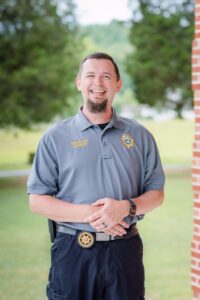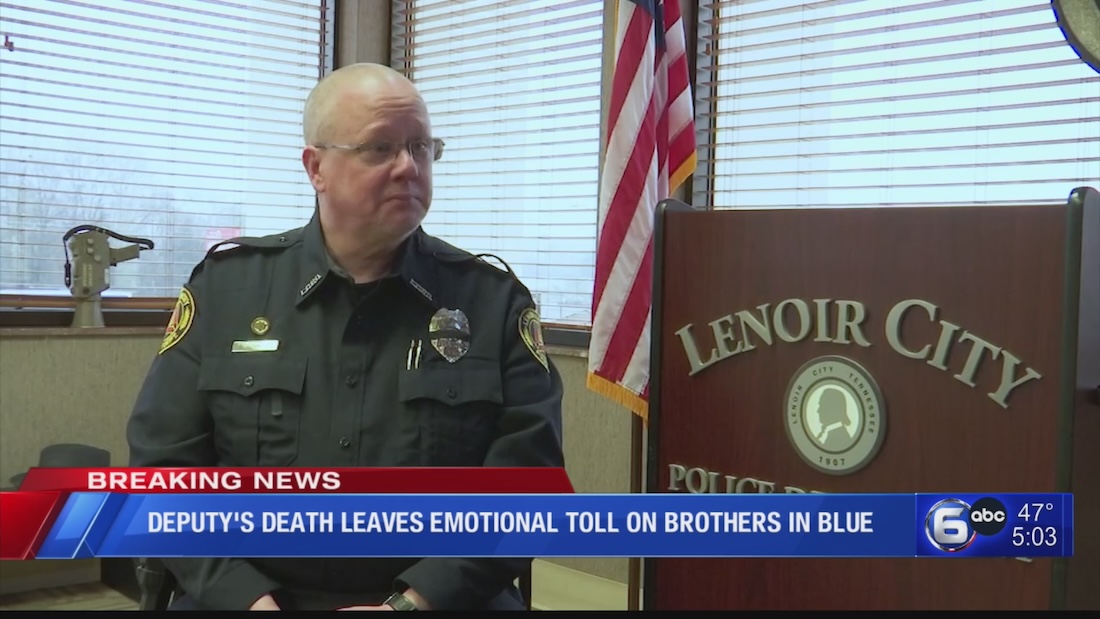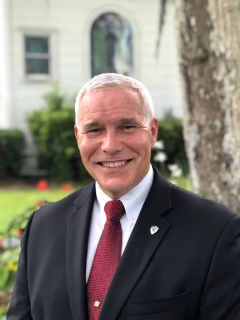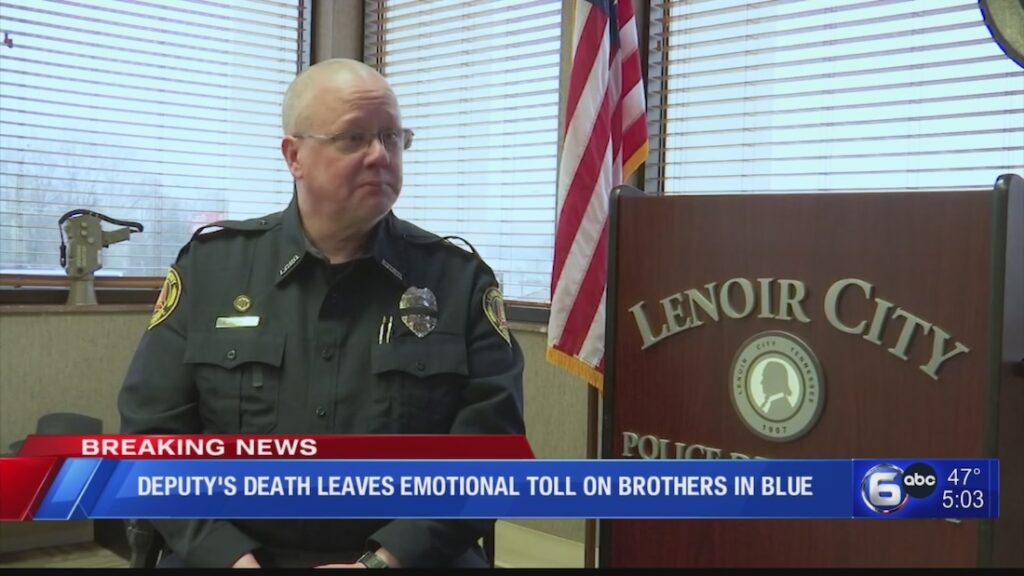KNOXVILLE, Tennessee—As the police car headed out of an apartment complex and toward Main Street of a small Tennessee town, Pastor Michael Koontz looked out the window at the Halloween decorations in a small house on the corner.
As a law enforcement chaplain, Koontz had grown accustomed to surprises while he rode along with men in blue.
But not much had prepared him for what would happen next on this day.

In a split second, the deputy in front of them turned on the lights, parked, and jumped out of his car and toward what Koontz thought had been decorations.
Koontz and the officer with them followed. To his surprise, what he mistook as a “decoration” had been a local homeless man who had tragically hung himself. Sadly, the officers were too late to save him.
The homeless man had been well-known to many of the officers, and Koontz was able to help them process the death in a healthy way.
“It wasn’t their fault that the man took his own life, but they are left to grapple with the aftermath,” Koontz noted.
Koontz is among the more than 300 Southern Baptists who serve on the front lines of ministry as law enforcement chaplains. These chaplains ride along with officers as they do their work, provide counseling, and even minister to families when officers die in the line of duty.
A Ministry of Presence
“First and foremost, chaplaincy is being the hands and feet of our Lord Jesus through the ministry of presence,” said Koontz, who also is the executive pastor at Black Oak Heights Baptist Church in Knoxville, Tennessee. “We have to be available, to sit, at times, and just be in the room. Once you’ve done that, and earned trust through time and sincere actions, you really get the opportunity to start ministering. I come in on the worst days of a person’s life, through tragedy, death, things like that. We get to be there and have a chance to just share our hope in Jesus.”
Koontz described receiving a phone call from a longtime high-ranking officer who was ready to quit after having to work an accident with fatalities the night before. The officer had worked on many similar incidents in his career, but this one caught up to him.
“As they embark on their careers, they’re metaphorically given a backpack,” Koontz said, using a reference that is common among chaplains. “Each call or incident they respond to adds a rock to this backpack. Minor events might add a small pebble, while more significant incidents add larger rocks. This backpack, constantly carried, symbolizes the burdens they accumulate over time.”
Because Koontz had spent several years with the agency, the officer trusted him. That day they talked, and Koontz shared Scripture with him, pointing him toward Christ as the source of hope. He became a follower of Jesus.
“A few weeks later he shared that he couldn’t start his day without first reading his Bible,” Koontz said. “What began as a moment of utter despair and near resignation ended with him fully surrendering to God and continuing his remarkable work in serving the community. This change was possible because a volunteer chaplain was there for him.”
Serving in the Shadow of Death
David Choate first became involved in criminal justice ministry at the local jail, where he ministered to people behind bars. God then began opening his eyes to opportunities in law enforcement ministry. Today he serves as a chaplain at the Lenoir City (Tennessee) Police Department.
Choate describes his ministry as serving both the community and the department simultaneously. Death notifications, for example, are one of the most difficult aspects of the work. Choate said he accompanies officers to deliver the news to families; he then stays to minister to the family while the officers leave to handle other calls.

Choate tries to connect the family to a local church who can provide long-term spiritual support. If the family member isn’t a person of faith, the chaplain will connect him or her to a trusted neighbor who can help them.
“In their moment of grief, I want to take care of them and get them some more long-term support via their pastor or whoever,” Choate said.
Daniel Middlebrooks, who retired as an Army chaplain in 2013, has served as a sheriff’s office chaplain and started Chaplaincy Care as a ministry for first responders. Caring for law enforcement officers after the death of one of their own, one of the most important roles of a chaplain.
“We work closely with the command structure to ensure everything is handled with the utmost respect and care,” Middlebrooks said. “The chaplain becomes a central piece of the mental health crisis intervention team, engaging with both the family and the command to prepare for the subsequent steps, including honor and recognition of the fallen officer.”

Middlebrooks said chaplains are available at the scene, the hospital and during the funeral to support the family and fellow officers.
“We ensure that officers have a chance to process their grief through debriefings and ongoing support,” Middlebrooks said. “Our goal is to be a ministering presence, offering comfort and spiritual support as they navigate their loss.”
Koontz, Choate and Middlebrooks all ask Southern Baptists to keep law enforcement chaplains in their prayers.
“Give us eyes to see,” Choate said. “Give us ears to hear. And then, when we see and we hear, give us boldness and wisdom. Because that’s what we need. Pray that the ‘noise’ will be removed from the officers who are struggling, so they can hear the Lord.”
The North American Mission Board supports more than 3,300 chaplains in community service, business, correctional facility, disaster relief, healthcare, and U.S. military roles. For more information on how to become an endorsed Southern Baptist chaplain, visit namb.net/chaplaincy.
Published July 30, 2024
